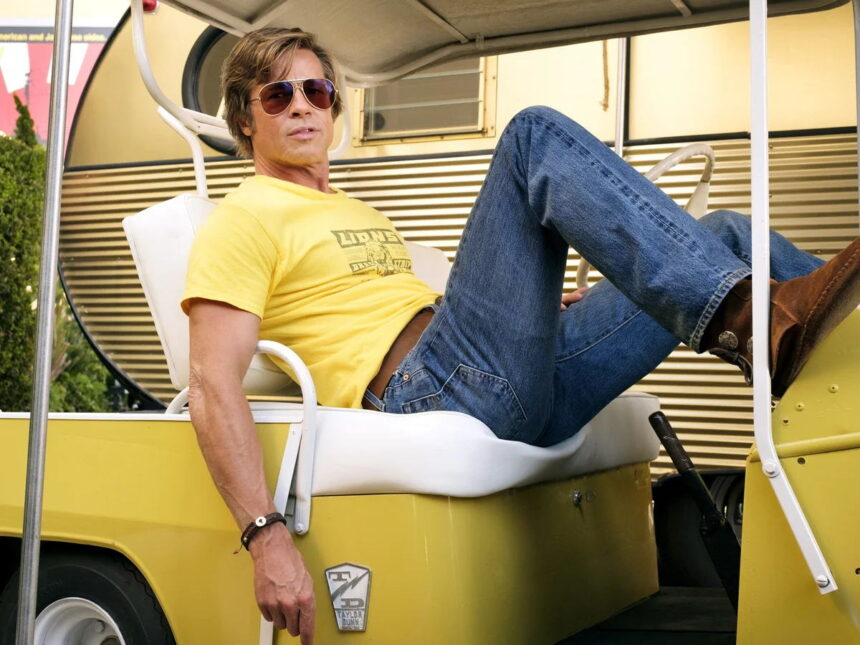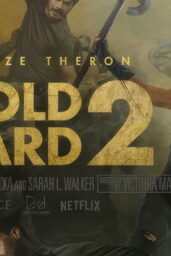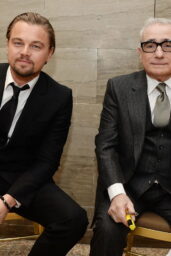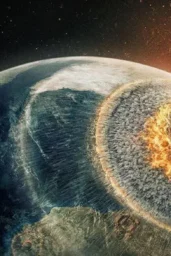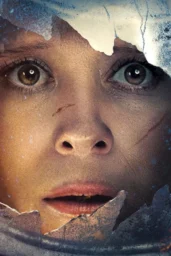“The first time I saw Once Upon a Time in Hollywood , it felt like Quentin Tarantino had bottled the essence of Los Angeles—sunshine, sleaze, and all—and poured it into three hours of pure cinema magic. Now, with David Fincher stepping behind the camera for what’s shaping up to be Brad Pitt’s most ambitious project yet, we’re about to see if lightning can strike twice—or explode entirely.”
A Spiritual Sequel That Feels Like Destiny
Tucked quietly inside a California Film Commission press release was a bombshell detail that should make any film obsessive sit up straight: an untitled Netflix feature is set to receive $20 million in tax credits—the largest single chunk ever awarded by the state. This isn’t just any movie; according to Deadline, this is The Adventures of Cliff Booth , a spiritual sequel to Tarantino’s 2019 masterpiece.
For those keeping score, here’s what we know so far:
- Start Date: July 28, 2025
- Wrap Date: January 16, 2026
- Projected Budget: Over $106 million (in-state spend alone). The overall budget? Still undisclosed but likely astronomical.
And then there’s the sheer scale of ambition—a six-month shoot involving 128 actors, 428 crew members, and nearly 4,000 background-actor workdays. It’s not just big; it’s gargantuan.
What makes this project even more tantalizing is its pedigree. Scripted by Tarantino himself, the story picks up where Once Upon a Time left off, following Cliff Booth—Pitt’s enigmatic stuntman-turned-drifter—into new, presumably darker territory. Joining Pitt are Carla Gugino, Yahya Abdul-Mateen II, Elizabeth Debicki, and Scott Caan—an eclectic mix that hints at something far removed from Tarantino’s signature style. Or does it?
Fincher vs. Tarantino: A Cinematic Collision Course
Here’s the thing about handing Tarantino’s script to David Fincher: you’re essentially asking two auteurs to collide. And collisions, as anyone who’s seen Fight Club or Django Unchained knows, tend to leave craters.
Fincher’s films thrive on cold precision—meticulous framing, oppressive atmospheres, and psychological unraveling. His characters often teeter on the edge of madness (Gone Girl ) or outright plunge into it (Se7en ). Tarantino, on the other hand, revels in chaos. His movies pulse with kinetic energy, dialogue-heavy scenes, and bursts of ultraviolence that feel less like punches and more like fireworks.
So what happens when these two forces meet? Does Fincher lean into Tarantino’s nostalgia-drenched ode to Hollywood, or does he twist it into something colder, sharper, darker? My money’s on the latter. If anything, Fincher could transform Cliff Booth—a character already shrouded in moral ambiguity—into a tragic figure trapped in a world spinning out of control.
Think about it: Cliff Booth is a man defined by his contradictions. He’s loyal but dangerous, charming but lethal, stuck between eras while trying to outrun his own shadow. In Fincher’s hands, Booth might become less of a hero and more of a ghost—a relic of a bygone era wandering through a landscape unrecognizable to him.
The Supporting Cast: An Oddball Ensemble
Let’s talk casting for a moment because this ensemble feels deliberately unconventional. Carla Gugino, known for her work in both blockbusters (San Andreas ) and arthouse gems (The Space Between Us ), brings a warmth and complexity that could balance Booth’s icy exterior. Meanwhile, Yahya Abdul-Mateen II—who stole every scene he was in during The Trial of the Chicago 7 and Candyman —might play the foil, someone who challenges Booth’s worldview.
Elizabeth Debicki, fresh off her haunting turn in The Great Gatsby and Tenet , adds another layer of intrigue. Is she the femme fatale? The moral compass? Or perhaps something else entirely? And Scott Caan, whose laid-back charisma made him a standout in Entourage and Hawaii Five-0 , seems poised to inject some levity into what promises to be a heavy narrative.
Together, they form a kaleidoscope of personalities—a perfect match for Fincher’s penchant for assembling casts that reflect the fractured worlds their characters inhabit.
Epic Ambitions, Monumental Risks
If the production details scream anything, it’s “epic.” Six months of filming is no small feat—it’s practically unheard of in today’s fast-paced industry. For comparison, The Revenant , which famously pushed Leonardo DiCaprio to extremes, wrapped principal photography in under five months.
But ambition comes with risk. Can Fincher sustain momentum over such a long shoot? Will Tarantino’s script translate well under someone else’s direction? And how will audiences respond to a sequel that exists in spirit rather than continuity?
One thing’s certain: this isn’t your average follow-up. With Tarantino signaling that his tenth film may be his last—and shelving The Movie Critic indefinitely—this could serve as a kind of coda to his career. It’s almost poetic, really: letting another master filmmaker reinterpret his work, much like passing the baton in a relay race.
Why This Matters Beyond the Screen
In many ways, The Adventures of Cliff Booth represents a collision of eras. On one side, you have Tarantino, whose love letter to 1969 Hollywood captured a specific moment in time. On the other, you have Fincher, whose films often grapple with the anxieties of modernity. Together, they’re creating something that bridges past and present—a meditation on how stories evolve, how legends fade, and how icons endure.
It’s also worth noting that this project arrives at a pivotal moment for both filmmakers. Tarantino, nearing retirement, has spent decades reshaping genre cinema. Fincher, meanwhile, continues to push boundaries, whether through TV (Mindhunter ) or film (The Social Network ). Their partnership feels inevitable, like two planets aligning after years of orbiting separately.
Final Thoughts: What Could Go Wrong?
There’s a lot riding on this film—not just financially but creatively. If successful, it could redefine how sequels are approached, blending reverence with reinvention. But if it falters, it risks alienating fans of both directors.
Is it a masterpiece waiting to happen? Or an experiment doomed to implode? I’m torn.
One thing’s for sure: July 28, 2025, marks the beginning of what could be one of the most fascinating experiments in recent cinematic history. Until then, we wait—and wonder.

